Women Role
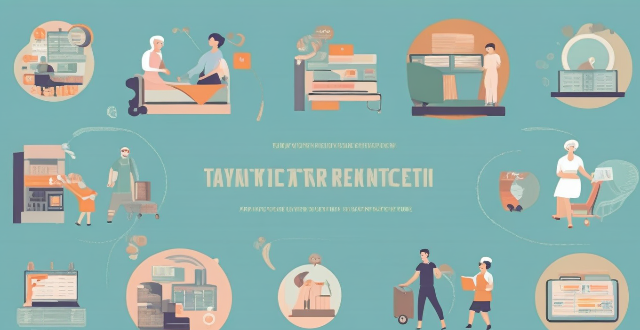
What is the role of a female therapist in treating women's psychological problems ?
The text discusses the role of a female therapist in treating women's psychological problems, emphasizing empathy, understanding, building trust, addressing gender-specific issues, and providing supportive interventions. The article suggests that women may feel more comfortable sharing their experiences with someone who can relate to their struggles and acknowledges the importance of validation for women who have been dismissed or minimized by others. Building trust is essential, especially for women who have experienced trauma or abuse, and creating a safe space involves establishing clear boundaries and maintaining confidentiality. Cultural sensitivity is also crucial when working with women from different backgrounds. Addressing gender-specific issues such as reproductive health concerns, body image, and trauma requires specialized treatment approaches. Providing supportive interventions like mindfulness practices and group therapy can help women connect with others and receive support from peers. Overall, the role of a female therapist is multifaceted and involves creating a safe and non-judgmental space to help women navigate their unique challenges and work towards improved mental health outcomes.
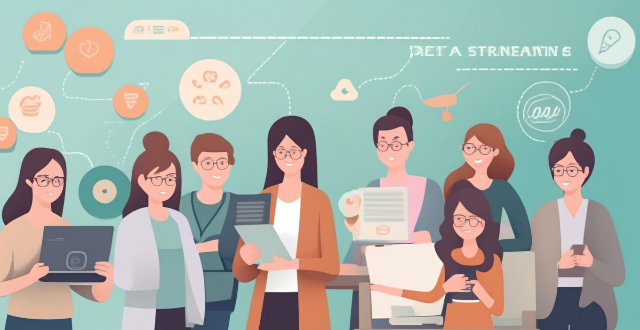
What is the role of women's advocacy groups in promoting legal reforms for female empowerment ?
The text discusses the role of women's advocacy groups in promoting legal reforms for female empowerment. Women's advocacy groups play a crucial role in raising awareness and educating the public, providing research and data, lobbying policymakers, collaborating with other organizations, and monitoring implementation and enforcement of laws. They work tirelessly to bring about changes in laws and policies that disproportionately affect women, ensuring their rights are protected and promoted.

What role do women play in addressing climate change ?
Women's Role in Addressing Climate Change: Women play a crucial role in addressing climate change through leadership and advocacy, innovative solutions, community engagement and education, and promoting gender equality and climate justice. They have led international negotiations, founded organizations dedicated to climate action, developed new technologies and business models, engaged in activities such as tree planting and waste reduction, and advocated for gender equality in decision-making processes. Women's contributions are essential to achieving a sustainable future for all.

What role does flexible working play in helping women achieve a better work-life balance ?
Flexible Working, Women, Work-Life Balance

In what ways does education empower women socially and politically ?
Education is crucial for women's empowerment, enabling them to challenge societal norms and contribute more fully to society. It fosters increased awareness, improved socioeconomic status, and enhanced social relationships. Education also leads to greater political participation, policy influence, and promotion of gender equality. Overall, education enriches society by improving the lives of women and contributing to a more equitable world.

How can counseling help women dealing with infertility-related stress ?
Counseling is crucial for women dealing with infertility-related stress. It helps identify emotional distress, address mental health concerns, build resilience and coping strategies, navigate medical treatment options, and foster hope and healing. By providing emotional support and promoting self-care practices, counseling empowers women to face the challenges of infertility with strength and courage.

What role does investment play in women's wealth management ?
Investing is crucial for women's wealth management, offering benefits like diversification, long-term growth, inflation protection, tax advantages, and flexibility. By wisely investing, women can enhance their financial security and achieve their financial goals.

How can I get involved with women-focused charity work locally or internationally ?
Involving in women-focused charity work is a meaningful way to promote gender equality and empower women. This guide provides tips on how to get involved locally and internationally, including researching organizations, volunteering time, donating money or resources, attending events and fundraisers, fundraising for international organizations, participating in online campaigns, and traveling abroad to support women's issues. Additionally, it emphasizes the importance of being open-minded, building relationships, staying informed, and evaluating your impact to make the most of your participation.
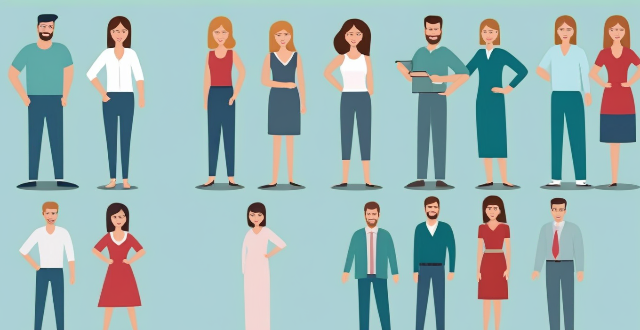
What role do mentorship and sponsorship play in advancing women's careers ?
Mentorship and sponsorship are essential for advancing women's careers, providing guidance, support, skill development, networking opportunities, and advocacy. However, women face challenges such as gender bias, lack of role models, and work-life balance issues. To empower women, organizations should encourage diverse mentorship pairings, promote inclusivity, provide training, and establish formal programs to facilitate these relationships.

How does climate change disproportionately affect women in developing countries ?
Climate change disproportionately affects women in developing countries due to socio-economic factors, cultural norms, and division of labor. Impacts include reproductive health issues, nutritional deficiencies, loss of traditional occupations, increased workload, water scarcity, and energy poverty. Adaptation and mitigation efforts should involve women in decision-making and build their capacities. Gender-sensitive policies and interventions are needed to address these challenges and promote a more equitable future.

How can we encourage more women to pursue leadership roles ?
Encouraging Women to Pursue Leadership Roles - **Education and Awareness**: Promote STEM education, highlight role models, address gender stereotypes. - **Workplace Policies and Practices**: Establish flexible work arrangements, provide mentorship programs, enforce anti-discrimination laws. - **Networking and Professional Development**: Sponsor women's networking events, offer leadership training programs, create women-specific scholarships. - **Cultural Change and Empowerment**: Promote a culture of inclusivity, address the confidence gap, celebrate women's achievements.
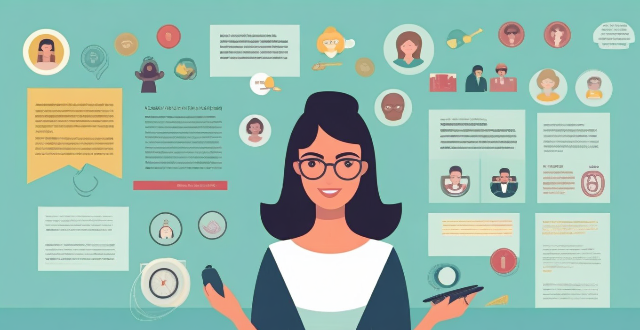
What role does communication play in women's relationship management ?
The article discusses the crucial role of communication in women's relationship management, highlighting its importance in building trust, understanding, empathy, and intimacy. It also provides tips for effective communication, such as active listening, non-verbal cues, I-messages, choosing the right time and place for conversations, and compromising and collaborating. By employing these strategies, women can navigate conflicts and challenges in their relationships effectively.

What is the success rate of in vitro fertilization (IVF) for women ?
In vitro fertilization (IVF) success rate for women depends on age, cause of infertility, and quality of eggs and sperm. Younger women with healthy eggs and sperm have higher chances of success, while older women or those with certain causes of infertility may face lower success rates. Other factors such as the number of embryos transferred, clinic experience, and use of assisted reproductive technologies can also impact the outcome. It is important to consult with a qualified fertility specialist to determine the best course of action for achieving pregnancy through IVF.

What initiatives can be taken to improve scientific literacy among women ?
Scientific literacy is important for making informed decisions about health, environment, and technology. Women often face barriers to accessing scientific education and resources. To improve scientific literacy among women, initiatives such as educational programs, community outreach, media representation, and policy changes can be taken. These include integrating STEM subjects into the school curriculum, offering girls-only classes, connecting young girls with female role models in STEM fields, establishing community-based science clubs for women of all ages, organizing public lectures by women scientists, conducting workshops and training sessions on various scientific topics, highlighting stories of successful women in science through media platforms, encouraging more women to pursue careers in science journalism, utilizing social media platforms to create awareness about scientific issues affecting women's lives, advocating for increased funding for educational programs and research initiatives focused on improving women's participation in STEM fields, lobbying for policies that ensure equal opportunities for women in science education and employment, and implementing mandatory gender bias training for educators and professionals working in STEM fields. By implementing these initiatives, we can create a more inclusive environment that encourages women to explore and contribute to the field of science.
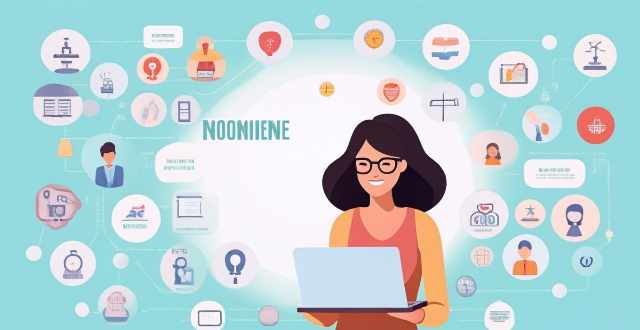
What is the status of women in STEM education and careers ?
The text provides a comprehensive overview of the status of women in STEM education and careers. It outlines key challenges and disparities faced by women at different levels of their academic and professional journeys, from undergraduate education to senior positions in academia and industry. The article also discusses barriers such as bias, stereotyping, workplace culture issues, and limited resources that contribute to these disparities. Initiatives aimed at improving the representation and advancement of women in STEM fields are highlighted, including educational programs, professional development opportunities, and policy changes. Despite progress, the need for continued efforts to achieve gender parity in STEM is emphasized.
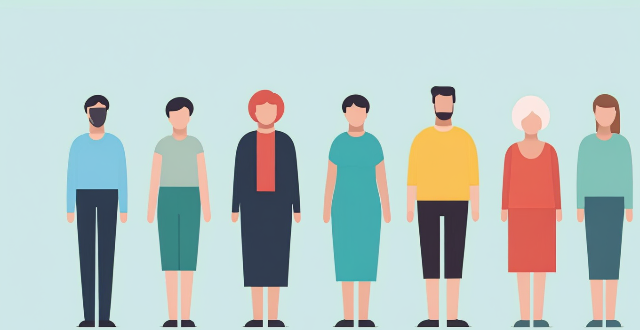
Can women serve on juries and hold positions of power within the legal system ?
The role of women in the legal system has evolved significantly over time. Women are now allowed and encouraged to serve on juries, bringing diversity of perspectives, increased trustworthiness, and improved decision-making. However, women still face challenges in achieving parity with men in holding positions of power within the legal system. Efforts such as affirmative action programs, mentorship programs, and flexible work arrangements have been implemented to address these issues.
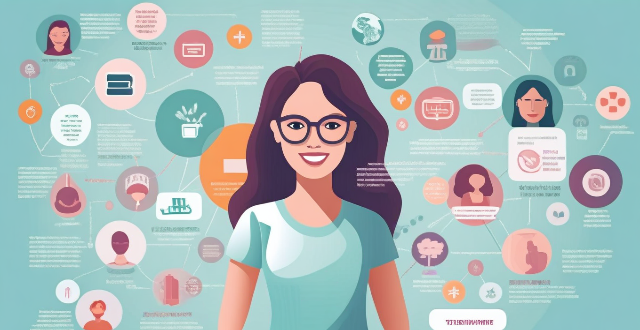
What is the role of technology in promoting women's welfare projects around the world ?
Technology has significantly impacted women's welfare projects worldwide. It has enhanced access to education, empowered women through digital entrepreneurship, improved healthcare services, promoted gender equality and women's rights, and facilitated financial inclusion. Technology has opened up new opportunities for women to lead fulfilling lives and contribute positively to society.

How can women effectively manage their wealth ?
Managing wealth is crucial for women to achieve financial security. Tips include setting SMART financial goals, creating a budget, building an emergency fund, investing wisely, prioritizing retirement savings, and seeking professional advice. By following these steps, women can effectively manage their wealth and achieve their financial goals.

What are the common fertility issues faced by women ?
Fertility issues can be a sensitive and complex topic for many women. There are several common fertility problems that women may face, which can impact their ability to conceive and carry a pregnancy to term. These include ovulation disorders, endometriosis, uterine fibroids, tubal blockage, and age-related infertility. It's important for women who are struggling with fertility to seek medical advice and explore treatment options that best suit their individual needs and circumstances.

What role do women play in climate change adaptation and mitigation efforts ?
Women play a crucial role in climate change adaptation and mitigation efforts. They are involved in sustainable agriculture, conserving natural resources, enhancing energy efficiency, advocating for climate action, and building resilience. By recognizing and supporting their contributions, we can enhance our collective efforts to address climate change.
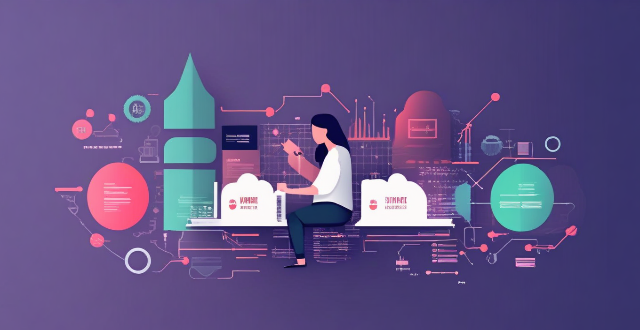
How do women-specific NGOs measure their impact on reducing poverty and inequality ?
This article explores how women-specific NGOs measure their impact on reducing poverty and inequality by focusing on key metrics such as economic empowerment, education and skill development, health and well-being, and gender equality and empowerment. It also highlights successful NGOs like Women's World Banking, Room to Read, and International Planned Parenthood Federation (IPPF) that use data collection tools to track progress towards their goals.

How does scientific literacy among women influence their career choices in science and technology fields ?
Scientific literacy significantly influences women's career choices in science and technology fields by enhancing opportunities, overcoming barriers, increasing diversity, and improving representation. It enables women to access complex scientific information, develop problem-solving skills, broaden their perspectives, break stereotypes, promote equality, address biases, expand career horizons, encourage mentorship, foster collaboration, challenge underrepresentation, influence policy, and change public perceptions about the suitability of these fields for females.
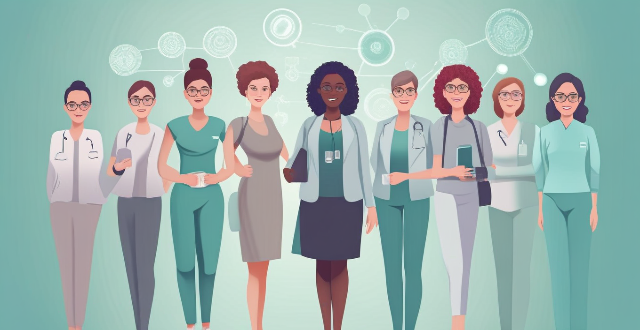
How does scientific literacy among women vary across different countries and cultures ?
This article explores the variations in scientific literacy among women across different countries and cultures. It highlights the factors that influence scientific literacy, including education, socio-economic status, cultural norms, and access to resources. The article also discusses the implications of these variations for society as a whole, such as health outcomes, economic development, and environmental sustainability efforts. Finally, it emphasizes the importance of promoting scientific literacy among women through targeted education programs and initiatives that address the specific challenges faced by women in different cultural contexts.
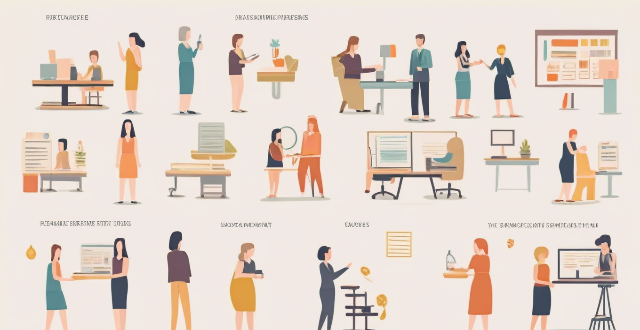
How can women improve their relationship management skills ?
Managing relationships is a crucial life skill that helps individuals navigate personal and professional connections effectively. For women, enhancing relationship management skills can lead to improved communication, deeper connections, and increased satisfaction in various aspects of life. The key areas to focus on include empathy and active listening, clear and honest communication, conflict resolution, boundary setting, self-awareness and personal growth, and building trust and loyalty. By practicing these skills, women can enhance their relationship management abilities and lead more fulfilling and harmonious lives.
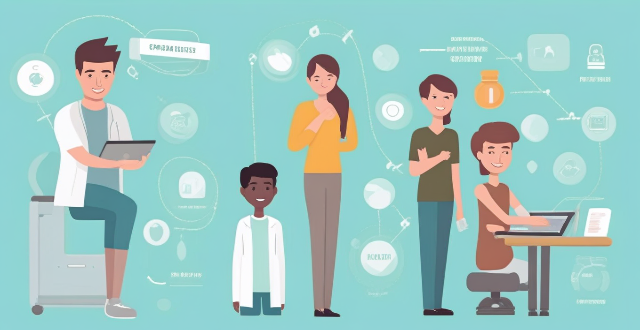
What role does reproductive health play in overall women's wellness ?
Reproductive health is a crucial aspect of overall women's wellness. It encompasses the physical, emotional, and social well-being related to the reproductive system. Some key aspects of reproductive health include menstrual health, pregnancy and childbirth, contraception, screening and prevention, self-esteem, mental health, relationships, education and empowerment, access to care, and gender equality. By addressing these various aspects of reproductive health, we can ensure that women lead healthy, fulfilling lives both physically and emotionally.

How can we use sports to promote gender equality and empower women and girls ?
Promoting gender equality and empowering women and girls through sports involves increasing visibility, ensuring fair representation, improving access and inclusivity, providing education and training, implementing policy and legislation, promoting health and wellness, encouraging economic empowerment, engaging the community, and fostering cultural change. These efforts aim to break down barriers, challenge stereotypes, and create opportunities for women and girls to thrive both on and off the field.

How can we address the stigma surrounding mental health in women ?
Summary: Addressing the stigma surrounding mental health in women requires a comprehensive approach involving education, awareness, and advocacy. Public education campaigns can help demystify mental health, while school programs can teach young girls that it's okay to seek help. Corporate training and media representation can also play a role in changing public perception. Support groups, mental health advocates, government policies, and employer policies can provide support and resources for women struggling with mental health issues. By working together, we can create a society where women feel comfortable discussing their mental health and seeking help without fear of judgment or discrimination.

What role do education and literacy play in advancing women's rights ?
Education and literacy are fundamental rights that play a crucial role in advancing women's rights. They empower women, enhance their decision-making abilities, and enable them to participate fully in society. Education and literacy provide women with the knowledge and skills necessary to make informed decisions about their lives. Educated women are more likely to delay marriage and childbearing, have fewer children, and make better health choices for themselves and their families. Education and literacy increase women's economic opportunities by enabling them to access better jobs and higher incomes. Educated women are more likely to be employed in professional or skilled positions, which leads to greater financial independence and bargaining power within households. Educated women are more aware of their health rights and are better equipped to make decisions related to their own health and well-being. They have improved access to healthcare services, understand the importance of preventive care, and are less likely to suffer from diseases associated with poverty and lack of education. Education and literacy enhance women's political engagement by providing them with the necessary knowledge and skills to participate actively in the political process. Educated women are more likely to vote, run for office, and hold leadership positions. Their increased political participation leads to policies that promote gender equality and address issues affecting women and girls. Education and literacy help to break down gender stereotypes and promote social equality between men and women. When women are educated, they are more likely to challenge discriminatory practices and traditions that limit their rights. Educated women are also more likely to advocate for gender equality in their communities, leading to a more equitable society for all.

Can hormone imbalances contribute to mental health problems in women ?
Hormonal imbalances can contribute to mental health problems in women by disrupting mood, emotions, and cognitive processes. Common issues related to hormonal imbalances include premenstrual dysphoric disorder, postpartum depression, and mood changes during perimenopause and menopause. Treatment options may include hormone therapy, antidepressants, and lifestyle changes.

What are the recommended daily allowances of vitamins and minerals for women ?
Vitamins and minerals are crucial for maintaining good health, and women have specific nutritional needs. The recommended daily allowances (RDA) of vitamins and minerals for adult women include various amounts of vitamins A, C, D, E, K, B-complex vitamins, and minerals such as calcium, iron, magnesium, phosphorus, potassium, zinc, copper, manganese, selenium, iodine, chromium, molybdenum, fluoride, and boron. These values are based on the average requirements of healthy adult women but may differ based on factors such as pregnancy, breastfeeding, age, and overall health. It's best to consult with a healthcare professional or registered dietitian to determine individual nutrient needs.